An Arab, Muslim, and Israeli officer at the centre of a storm
Working for the force for 20 years, Samri says she is a proud Arab with Palestinian roots
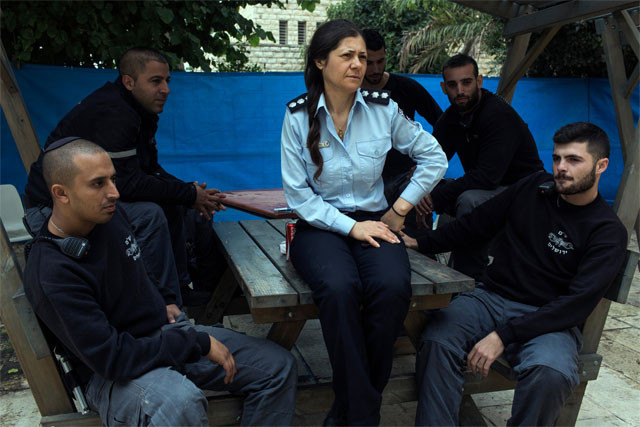
There was a time when news reporters listened to the crackle of scanners, eavesdropping on police radio transmissions in search of the next story. Now, many of them simply sign up with one of Superintendent Luba Samri’s WhatsApp groups.
On a recent night, as police choppers thumped overhead and security forces moved in to demolish or seal up the homes of suspects, a sleepless Samri sent an explanation of the events to her restless pack of reporters at 4 am.
Arab female bodybuilder looks abroad for recognition
For Samri, a 44-year-old Israeli officer and spokesperson, police work has been a calling since she joined the force nearly 20 years ago. What makes her devotion all the more unusual is that she is an Arab Muslim citizen of Israel, putting her squarely in the storm of competing loyalties and emotions stirred up by the violence that she has been broadcasting about.
Over the past month, Palestinian assailants using knives, guns and their vehicles as weapons have attacked Israelis, often several times a day, and many of the suspects have been fatally shot by police officers, soldiers or civilians at the scene, generating a furor that has engulfed both sides.
Samri, whose steady stream of WhatsApp updates starts early in the morning and continues into the wee hours, says she has no inner conflicts about her role amid the surge in violence.
“Democracy is law,” she said. “I believe in the law, not because I want to be more Jewish than the Jews. I am a proud Arab with Palestinian roots, and I am the proudest Israeli.”
Arab female mountaineer to take on Pakistani peaks
But acknowledging the inherent paradoxes of the Arab-Israeli dilemma, she added, “In my community there are conflicts,” conflicts “between their identity, their Israeliness and their reality.”
Out of more than 30 recent attacks or attempted attacks, three have been carried out by Arab citizens of Israel. In one case a woman, Asaara Abed, 30, was shot in the leg and wounded after she brandished a knife and was accused of intending to stab a soldier at the Afula bus station in northern Israel.
The authorities now say they believe that she had mental issues and acted out of unrequited love, rather than political motives. As in several recent cases, much of the event was captured on video and raised sharp questions about the use of live fire by the security forces.
AS a representative of the police, Samri walks a fine line between being fully integrated into the establishment and being a minority. Arab citizens of Israel make up more than 20 per cent of the country’s population, and they have long complained about discrimination in state budgets and policies.
First Arab Muslim woman to officiate at Wimbledon 2015
Her role in explaining government policy and actions has also put her at odds with the country’s Arab political leadership.
The upsurge in violence has in part been fanned by a dispute over the Jerusalem holy site revered by Muslims as the Aqsa Mosque compound, or Haram al-Sharif, and by Jews as the Temple Mount.
Arab members of the Knesset, Israel’s Parliament, say they oppose violence by Israel’s Arab citizens. But they have accused Israel of changing a decades-old status quo at the site and the police of having too light a finger on the trigger. Thousands of Israel’s Arabs have participated in strikes and protests, clashing with the police in recent weeks and adding to the turbulent atmosphere.
“Al Aqsa is not only a religious symbol, it is a political, national and cultural symbol for the Palestinians,” Ahmad Tibi, a Knesset member from the Joint Arab List, which holds 13 seats in the 120-seat Parliament, said at a news conference in East Jerusalem this week.
Muslim gymnast criticised for ‘revealing’ costume as she wins double-gold
Samri, articulating the official government line, insists that Israel has no intention of changing the status quo at the Aqsa Mosque compound. She has attributed much of the recent violence to incitement spread by Palestinians on social networks, and she brusquely rejects accusations that the police are using excessive force and shooting to kill.
“We are the police,” she said. “We are not criminals or murderers.”
Samri was speaking at a corner table in a small cafe near her Jerusalem apartment, where she lives alone. She could barely finish a sentence without her smartphone buzzing with calls and messages, swiping and typing furiously as she sent out a constant flow of updates, in Arabic and Hebrew, to hundreds of followers in her WhatsApp groups.
“What now?” she broke off to inquire as an ambulance rushed by, siren blaring. She soon went back to typing a message for her Arabic group about a murder that morning in the Negev desert in southern Israel.
Women’s cycling team pushes past roadblocks in Afghanistan
Samri grew up one of 12 siblings in Maker, a village in the western Galilee. She described her family as pious and conservative and said they were supportive of her, though no other relatives have served in the Israeli security services.
After studying Arabic and philosophy at Haifa University, Samri joined the police. “I am for peace and coexistence,” she said. “I wanted to be in a position where I could have influence. The police gave me that opportunity.”
She spent part of her first 12 years in Jerusalem working as a liaison among the police, City Hall and other civilian bodies. She also handled cases involving sex crimes and family violence in the eastern, predominantly Palestinian part of the city that Israel conquered in the 1967 war and annexed in a move that was never internationally recognized.
For the last eight years, she has been the spokeswoman who deals with the Arabic news media and has expanded her services, by popular demand, to Hebrew speakers in the international press corps. (The police spokesperson for the foreign press works the phones and posts Twitter messages in English, while another representative works with the Russian-language news media.)
Round-the-clock presence of female cops demanded
Of the roughly 30,000 members of the police and the border police, about 2,500 of the rank and file are listed as belonging to Israel’s Arab minorities and fewer than 300 are officers, including 200 Druze. Samri says she is one of a few dozen Arab women in the force.
Samri updates the police Facebook page in Arabic and admonishes unruly reporters who post questions on the group WhatsApp instead of privately. But she also finds time for some flashes of wry humor.
When a Palestinian woman tried to ignite a gas balloon in her car as she approached a checkpoint in the West Bank, according to the authorities, Ms. Samri described her on WhatsApp as a terrorist, noting that the woman had cried “Allahu akbar.”
When a journalist asked if the police had ruled out an electrical fault as a cause of the fire in the car and pointed out that Arab women sometimes cried “Allahu akbar” in fear or panic, Samri thanked him for the educational enrichment and added, in classical Hebrew, “Indeed, I am an Arab woman.”
This article originally appeared on the New York Times, a partner of The Express Tribune.

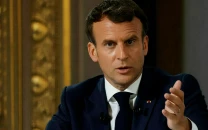

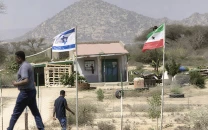
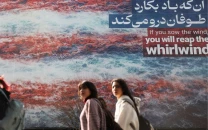
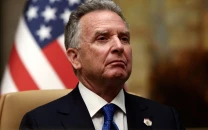
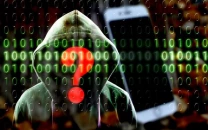












COMMENTS
Comments are moderated and generally will be posted if they are on-topic and not abusive.
For more information, please see our Comments FAQ